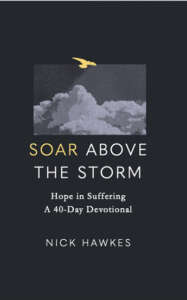The militant atheist, Richard Dawkins, could be forgiven for coming to the conclusion that the events of the Exodus are myth, if he took into account the conclusions of many Egyptologists such as the Israeli archaeologist, Israel Finkelstein, and the American archaeologist, Neil Asher Silberman.[i] They co-wrote a book entitled The Bible Unearthed, in which they claim that the evidence showing that the Exodus did not happen at the time and in the manner described in the Bible is “irrefutable.”[ii] Some claim that the people of Israel didn’t even exist at that time.
However, the American Old Testament scholar and an Egyptologist, Professor James Hoffmeier, disagrees.[iii] He makes the following points:
The first reference to Israel
The professor makes the point that a people group called “Israel” did exist at that time in history. He makes reference to the existence of an engraved stone pillar (a stele), on which Ramesses II (Ramesses the Great) boasted of his conquest of the surrounding nations, including Israel. This stone is called the Merneptah stele. It was discovered in 1896 by Flinders Petrie, and it is now located in the Cairo Museum.
Is there evidence of Semites living in Egypt?
There were three periods when Egypt was powerful. These have been called the Old, Middle and New Kingdoms. Between these periods, Egypt was weak and unable to police its borders. This allowed the Semitic group, the Hyksos, to live in the Nile delta.
It’s worth noting that the Bible has something to say about the date of the Jewish exodus from Egypt. It mentions that the exodus occurred 480 years prior to the laying of the foundations of Solomon’s temple in 966 BC (1 Kings 6:1). If the dating of the laying the foundation is correct, it would suggest that the Pharaoh at that time of the Exodus lived just before Amenhotep II, a pharaoh who lived well before Ramesses.
There can be little doubt that Hebrew people were enslaved in Egypt. An Egyptian list of domestic slaves (probably written in the 17th century BCE) contains not only Semitic names, but several specifically Hebrew names.
“Children of the Nursery” and the story of Joseph
The Pharaohs used to take foreign captive princes, if children, and train them up to serve Pharaoh’s purposes. A boy trained in this way was called “A Child of the Nursery”, and to be trained in such a way was considered to be a great honour. The training of Moses by the royal family is entirely consistent with this practice.
It is also significant that in 1980, the limestone tomb of Aper-El was discovered in Saqqara, the necropolis of Memphis. Aper-El, (El meaning ‘God’) was a Semitic man who became the prime minister (vizier) of Amenophis III in the 14thcentury BC.
Is the Exodus story a fiction?
Is the Exodus story a fiction written to help the Jews navigate their return from captivity at the time of the Persian Empire?
Possibly not, because some of the names mentioned in the Exodus story, e.g. Miriam and Hur (which literally means “of Horus” the Egyptian god), are Egyptian names. It is unlikely that a writer writing a fictional account in the Persian period would have given Egyptian names to his characters.
Enslavement
There can be little doubt that Hebrew people were enslaved in Egypt. An Egyptian list of domestic slaves (probably written in the 17th century BCE) contains not only Semitic names, but several specifically Hebrew names. This document is known as Papyrus Brooklyn 35.1446.
There is also a wall painting of Nubian and Semites (distinguished by their scruffy beards) working as slaves under the goading of the Egyptian overlords.
Plagues
Plagues of the type mentioned in Exodus chapters 7-11 happened from time to time in Egyptian history. Plague pits of hastily buried bodies have been found.
The parting of the sea
The identity of the Red Sea (or the Sea of Reeds) is uncertain. It could easily be a series of three large lakes that flooded in the rainy season to become one lake. For some periods of the year, it was possible to thread your way round the three large lakes – if you knew the path.
Why is there no record of a mass exodus of Jews from Egypt?
Papyrus records don’t survive. The oldest extant papyri come from Roman times. As such, there is 2,000 years of silence regarding old Egyptian written records. The number of Jews recorded leaving Egypt was 600,000 men, according to Exodus 12:37. However, in Hebrew, the number is written with three words: six (shishshah), hundred (meyah), thousand (eleph). The tricky thing is eleph not only means “a thousand”, but also a clan or family unit (literally: “people yoked together”). If this is so, then the number of people involved in the Exodus could only be as few as 3,500 men, or 10,000 people overall.
The city of Ramesses
Ramesses’ father began to build the city, but then Ramesses II developed it into one of the biggest cities in the world. The city flourished between 1275 – 1130 BC. Unfortunately, the tributary of the Nile that fed the city and facilitated transport silted up, and so the city was abandoned, dismantled and moved to Tanis. This is why Ramesses is referred to as Tanis (biblical Zoan) in Psalm 78:12,43. It would be unlikely to have this detail if the Exodus story was fictional.
So, what do you think?
[i] Richard Dawkins Foundation “No Exodus – no Judeo-Christian faiths?” Sept 5, 2013, see: https://richarddawkins.net/2013/09/no-exodus-no-judeo-christian-faiths/
[ii] Israel Finkelstein and Neil Asher Silberman, The Bible Unearthed, (Simon and Schuster, 2002), p.63.
[iii] James Hoffmeier, interviewed by John Dickson in Undeceptions, “The Exodus,” Season 4, see: https://undeceptions.com/podcast/the-exodus
 Dr Nick Hawkes is a scientist, pastor, apologist, writer and broadcaster. He also describes himself as an absent-minded, slightly obsessive man who is pathetically weak due to cancer and chemo, who has experienced, and needs to experience, the grace of God each day.
Dr Nick Hawkes is a scientist, pastor, apologist, writer and broadcaster. He also describes himself as an absent-minded, slightly obsessive man who is pathetically weak due to cancer and chemo, who has experienced, and needs to experience, the grace of God each day.
This article is part of a series, Things I have been asked
Nick has written a book Soar above the Storm in which he draws on his experience of cancer to encourage anyone walking through a storm in life to find rest and hope in God. It offers a 40-day retreat to be refreshed and strengthened and find deep peace in God. Order it at Koorong.
He blogs and records podcasts at nickhawkes.net
Nick told his life story to Eternity here: Deadly storms, heroin addicts, cancer and my faith.
Pray
Some prayer points to help
What does the story of Scripture mean to you? If God can guide the children of Israel, what can you as his help with in your life?


